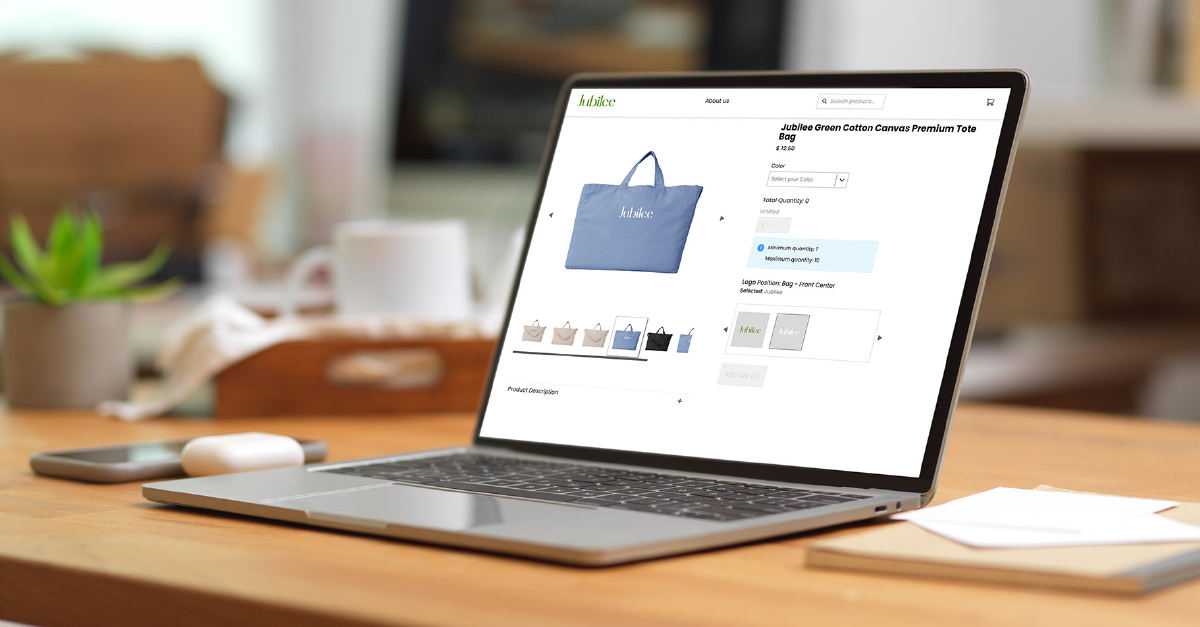2 min read
Maximizing Sales: On-Demand Promotional Products
Suz Pathmanathan
:
Apr 30, 2024 4:42:44 AM

The promotional products industry stands at a crossroads in an era where the noise around sustainability, efficiency, and equity grows louder. Danielle Augustine, VP of Sales at FAST Platform’s recent conversation with us ahead of our Maximize Sales with Company Stores On-Demand provides a roadmap for technological integration and a vision for a radically transformed industry.
The promotional products market is witnessing a shift towards sustainability, with consumers increasingly favoring eco-friendly and ethically produced items. A 2023 ASI report highlights a 20% increase in demand for sustainable promotional products, signaling a broader change in consumer preferences.
But what’s really the best way to be sustainable? To produce less by only catering to demand.
The promotional products industry has historically been reliant on bulk production. Danielle highlights the urgent need for sustainable practices, noting, “Sustainability isn’t just about materials; it’s about processes.” On-demand production technologies promise to reduce waste, conserve resources, and tailor products to specific consumer needs, aligning production with the principles of a circular economy.

This isn’t just a theoretical ideal. Companies like Zazzle and Brikl are revolutionizing promotional products, moving towards a model where items are made only when needed. This approach has been shown to significantly reduce excess inventory and waste, echoing Danielle’s call for process-based sustainability.
Technology is helping democratize design and production across the industry, empowering small businesses and individual designers to be able to access markets and close business like never before. This shift not only fosters innovation but also promotes inclusivity, allowing a diverse range of voices to shape the industry’s future.

A 2022 survey from Shopify reveals that 70% of small businesses believe technology levels the playing field with larger competitors, especially in niches like custom promotional products. This trend is accelerating as platforms become more user-friendly and accessible to non-technical entrepreneurs.
The Challenge of Integration
Integrating new technologies into existing systems presents significant challenges. Danielle speaks to the importance of seamless integration, emphasizing that technology’s true potential lies in its ability to enhance connectivity and efficiency across the entire supply chain.
Integration challenges are not unique to the promotional products industry. A Deloitte study on digital transformation revealed that 65% of businesses cite integration with legacy systems as a major barrier to technology adoption, underscoring the need for flexible, adaptable solutions that can bridge the gap between old and new.

The vision for the future of the promotional products industry is one of interconnectedness—not just among businesses and consumers but also between technology and sustainability. “Our goal is to create an ecosystem where technology supports sustainable growth and innovation,” Danielle envisions.
The future Danielle describes is already taking shape. The Internet of Things (IoT) and blockchain technology are beginning to play roles in ensuring product authenticity, traceability, and ethical sourcing, paving the way for a more transparent and connected industry ecosystem.
By embracing technology, the industry has the potential to not only navigate the challenges of the present but also pave the way for a future that is conscious, fairer, and innovative.
The promotional products industry’s journey towards sustainability and technological integration reflects a microcosm of the broader business landscape’s challenges and opportunities. As businesses and consumers alike become more conscious of their impact on the world, the industry’s evolution offers a hopeful blueprint for a more sustainable and equitable global economy.






